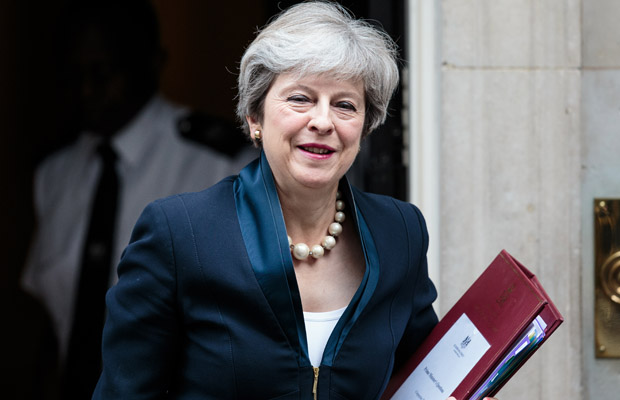Theresa May tries to fight off Brexit divides in Cabinet
 Gary Gibbon
Political Editor
Gary Gibbon
Political Editor
Theresa May tried to bat away questions about Cabinet divisions on Brexit in a press conference in Ottawa but those divides are real and potentially lethal.

The divisions over the transitional phase are not as deep as some have suggested, even though Boris Johnson has been floating resistance to big buckets of money continuing to go to Brussels after the actual date of Brexit.
Asked at the UN in New York if he would resign if he didn’t get what he wants over the transition, he said he thought the reporter had got the wrong end of the stick.
The real government divisions, as I mentioned on 7th September, are over the end destination. Is it a Canadian style relationship on trade which leaves the UK free of what some Brexit supporters see as the shackles of EU regulation? Or is it a relationship much closer to the EU, a bit more along the lines of Norway? You will hear Whitehall sources close to the negotiations talk of “Canada plus plus” and “Norway minus.” The latter involves much more rule-taking from Brussels. The former would, supporters say, give scope for much more autonomous rule making by post-Brexit Britain.
One Whitehall veteran says senior figures in EU capitals have decided that Theresa May’s political position is now probably too fragile to make the choice without endangering her own position. She faces the possibility of resignations whichever way she lurches and that could trigger her downfall and a full-blown power struggle in the Tory Party.
So expectations in Brussels and other capitals are that the PM will not have much scope to say much new in her speech on Friday in Florence. She can commit to a transition period that is quite close to the status quo but many Brexiteers will tolerate that only if they know the end destination isn’t what they’d see as some kind of purgatory, forever suspended in that state with less sovereignty than the UK had as a full-blown member of the EU.
Today Theresa May repeated that the end destination she outlined in her Lancaster House speech remains government policy. Back in January in that speech she spoke of no “partial membership,” no “half-in, half-out.” The Brexiteers for Canada Plus felt she was singing their tune. Philip Hammond didn’t kick up rough then so he can hardly object to that line being repeated on Friday.
But in the interim, there has been a general election which saw the Tories slide backwards. Philip Hammond and others have felt emboldened to believe that the end destination could be one they say business is telling them would frighten them less but which would involve more rule-taking.
One figure at the centre of the Brexit negotiations, Oliver Robbins, Permanent Secretary at DEXEU, announced today that he was standing down from that job. He will carry on being the lead official in Brexit talks but will no longer work for both Theresa May and David Davis but only for Theresa May. One Whitehall source said reports of a fall-out between Mr Davis and Mr Robbins on Politico were pretty accurate. Mr Davis was said by colleagues to feel that Mr Robbins sometimes went behind his back with information to Mrs May. One old Whitehall warrior said Mr Robbins was “a bit of a securocrat and very secretive.” You don’t need a very fertile imagination to guess how they’re characterising this fall-out in Brussels.